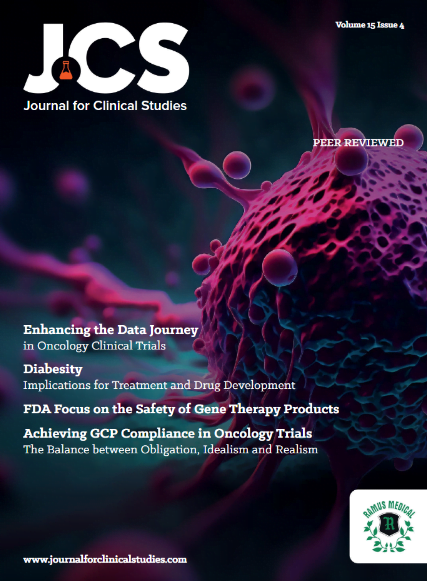
- For the third time, the Food and Drug Administration cleared a cancer drug to treat tumors based on a specific genetic signature rather than by location in the body, approving on Thursday a new targeted therapy from Roche.
- Rozlytrek, as the drug will be sold, is OK’d for use in adults and adolescents older than 12 whose solid tumors are marked by a rare genetic alteration formed by the fusing of a gene called NTRK with other genes. The FDA also approved Rozlytrek for lung cancers that test positive for another mutation known as ROS1.
- Two other cancer drugs carry similar pan-tumor approvals: Merck & Co.’s Keytruda, for solid tumors characterized by the accumulation of errors in a type of repeated genetic sequence; and Loxo Oncology’s Vitrakvi, also for NTRK fusion-positive tumors.
Aimed at the molecular catalysts of tumor growth, targeted therapies are treatment mainstays across a wide range of cancer types.
Drugs like Rozlytrek (entrectinib) and Vitrakvi (larotrectinib) advance the field one step further, having proved effective in shrinking genetically defined tumors anywhere they occur. Their approvals mark the start of a shift in how cancer can be diagnosed and treated, with changes in the DNA make-up of a tumor made more important than its location.
“We’re seeing continued advances in the use of biomarkers to guide drug development and the more targeted delivery of medicine,” said acting FDA Commissioner Ned Sharpless in an August 15 statement.
While Rozlytrek — and Vitrakvi before it — showed impressive results in the clinic, use of the drugs is limited by the number of eligible patients who can be identified.
NTRK gene fusions, the genetic defect which Rozlytrek and Vitrakvi both target, occur in only a few thousand patients in the U.S. each year. The drugs’ approvals are narrower still. Patients with metastatic solid tumors positive for NTRK gene fusion must also have no known acquired resistance mutations, and have progressed following initial treatment (or have no alternatives).
And as of yet, there are no FDA-approved tests to detect NTRK fusion-positive tumors. Roche said it is working to develop a companion diagnostic for Rozlytrek with Foundation Medicine, which it bought last year for $2.4 billion. The genomic profiling company is also collaborating on a test with Bayer, which owns commercial rights to Vitrakvi.
In trials of both drugs, NTRK gene fusion was tested using local laboratory tests.
Of the 54 NTRK-positive patients included in the approved FDA label for Rozlytrek, 31 responded to treatment, including four who experienced a complete response. Tumors in just under half of those 31 patients remained in response through one year post-treatment.
The most common tumor types among treated patients were sarcoma, salivary, lung and breast cancer.
Rozlytrek is also approved for ROS1-positive non-small cell lung cancer. There, treatment shrank tumors in 78% of 51 patients included on the drug’s approved label.
Side effects to treatment were many, and included serious heart risks as well as central nervous system effects and liver toxicity.
Treatments already exist for ROS1 tumors, including Pfizer’s blockbuster drug Xalkori (crizotinib). Turning Point Therapeutics is developing a drug called repotrectinib that targets ROS1, while Pfizer is testing its other drug Lorbrena (lorlatinib) in the tumor type.
That Rozlytrek is approved in two different indications could help it commercially, although competition will likely be high in both markets. Roche acquired the drug in its 2017 purchase of Ignyta for $1.7 billion.
Sales numbers aren’t yet available for Vitrakvi, but Bayer said in July the commercial launch is meeting its expectations. The German drugmaker picked up full rights to the drug following Eli Lilly’s $8 billion takeover of Loxo Oncology, Vitrakvi’s original developer.
Roche priced Rozlytrek at approximately $17,050 per month for adults. Pricing for adolescents with NTRK positive tumors is based on dosing, the company said. By comparison, the cost for a monthly supply of Vitrakvi can be as high as $32,800, making Roche’s pricing an opening salvo in its bid to unseat Bayer.
Provided testing is widespread enough, tumor-agnostic indications can yield sales success — helped by the high monthly prices cancer drugs command.
Merck has turned its niche approval for Keytruda in microsatellite instability-high tumors, for example, into a relatively sizable part of the drug’s overall business. About 5% of Keytruda sales in the U.S. are now in MSI-high cancers, representing about $140 million of the $2.78 billion Merck earned over the first six months of 2019.















